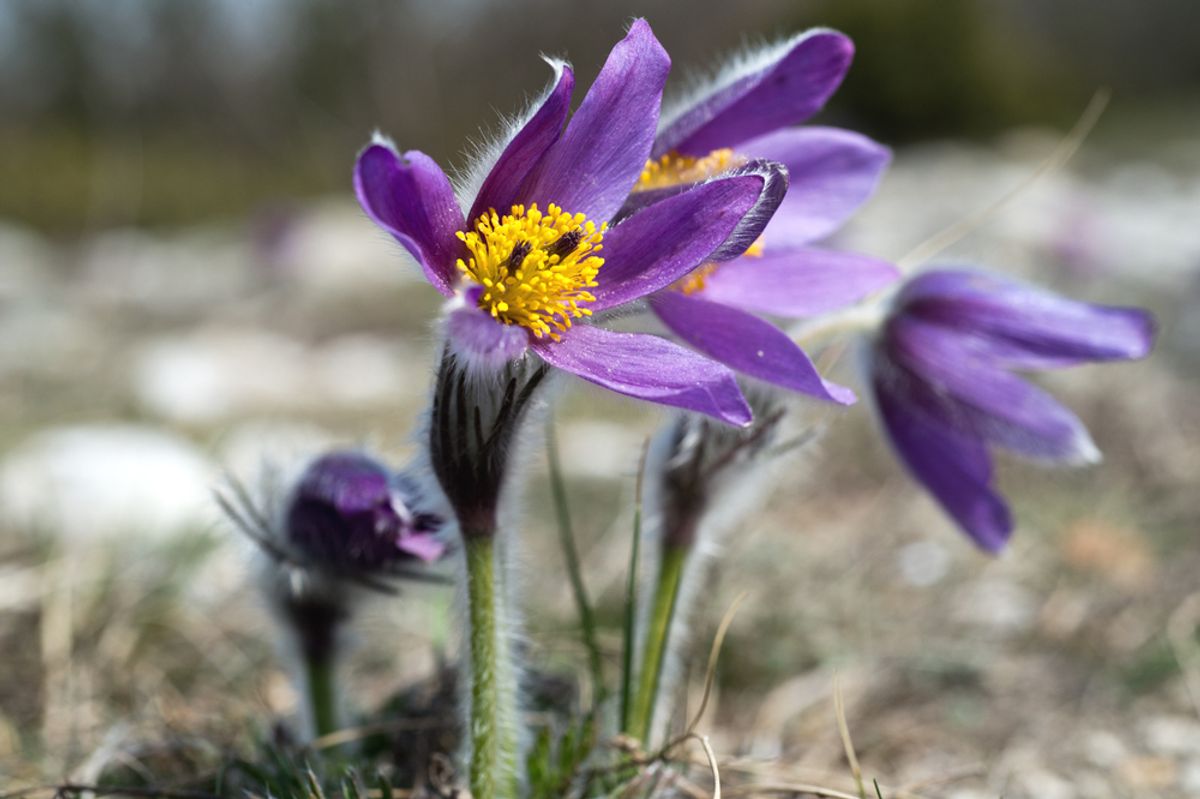Wildflower season in the Rocky Mountains lasts over a month longer than it did in the 1970s, an exhaustive new study confirms, as spring, thanks to climate change, creeps earlier and earlier.
Since they smell good and are pleasant to look at, shouting "more wildflowers!" isn't likely to get people's attention about how serious climate change is. But unlike, say, extreme weather, this is something that scientists can confirm is definitely happening -- the data covers 39 years and over 2 million blooms -- and the evidence linking it to climate change is decidedly strong. The LA Times explains:
Earlier spring snowmelt and other climate shifts have changed the timing of blooms for more than two-thirds of 60 species of native wildflowers in mountain meadows, stands of Aspen trees and conifer forest that were surveyed from 1974 to 2012, according to the study published in the Proceedings of the National Academy of Sciences.
The scientific paper is the latest to document one of the strongest signs that global warming is shaking up the natural world. Scientists studying phenology — the timing of seasonal events in nature — are observing rapid shifts in when flowers bloom, trees leaf out and bees, birds and butterflies appear in the spring.
Scientists have documented the trend using historical records from writers and naturalists, including Henry David Thoreau, who in the 1850s began recording in his journal the first blooms of the season around Concord, Mass.
Previous studies largely have focused on the first appearance of flowers in the spring, but that probably underestimates the true extent of the changes they are going through, the paper says.
To go beyond that, researchers analyzed wildflower species throughout the season. They found that half of them flowered earlier, more than a third reached their peak blooms sooner and 30% flowered later into the year due to a warming climate.
The full consequences of this shift in phenology (the timing of seasonal events) are still unclear, but Mother Jones got the study's authors to speculate a bit:
...flower phenology has implications beyond making nice company for hikers. The early appearance of flowers increases competition amongst them for pollinators, like bees, which can in turn get thrown off by unusual dining options, and the effects cascade up the ecological pyramid from there. In the biological marketplace, "things that used to be on sale at different times are now on sale together," said co-author Amy Iler.
[Co-author Paul] CaraDonna said the next step in the study is to look more closely at how the shiftxed timing of flowers can destabilize an ecosystem, but even now he's confident the impacts are underway: "If you change this much of an ecological community, there will be consequences."



Shares